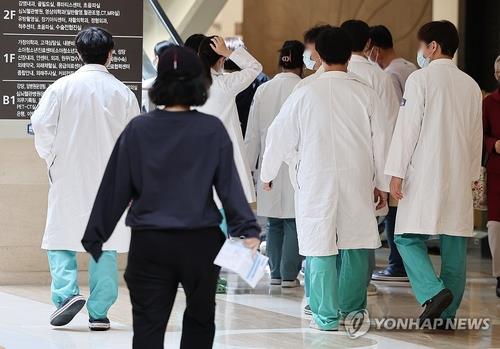- California Assembly OKs highest minimum wage in nation
- S. Korea unveils first graphic cigarette warnings
- US joins with South Korea, Japan in bid to deter North Korea
- LPGA golfer Chun In-gee finally back in action
- S. Korea won’t be top seed in final World Cup qualification round
- US men’s soccer misses 2nd straight Olympics
- US back on track in qualifying with 4-0 win over Guatemala
- High-intensity workout injuries spawn cottage industry
- CDC expands range of Zika mosquitoes into parts of Northeast
- Who knew? ‘The Walking Dead’ is helping families connect
Gov’t likely to accept university chiefs’ request to lower med school enrollment quota
The government is likely to accept a request made by the chiefs of six national universities to lower their medical school enrollment quotas for next year, officials said Friday.
The six universities, all located outside the capital region, made the request Thursday amid an ongoing standoff between the government and the medical community over the government’s decision to increase total medical school admissions by 2,000 starting next year.
The six — Gangwon National University, Kyungpook National University, Gyeongsang National University, Chungnam National University, Chungbuk National University and Jeju National University — asked that they be allowed to lower the quotas assigned to them by up to 50 percent next year.
The proposal will be discussed during a government meeting led by Prime Minister Han Duck-soo later Friday, according to government and presidential officials.
“We’re open to (adjusting) the number 2,000,” a presidential official told Yonhap News Agency. “If they give us their opinion, of course, there should be room to consider it positively.”
The official stressed the need to make a quick decision given universities’ admissions timetables.
Han is reportedly considering announcing the outcome of the meeting at a press briefing later in the day. Also expected to be discussed at the meeting is whether to adjust the enrollment quota for 2026 and beyond. The current government plan calls for an annual increase of 2,000 seats.












